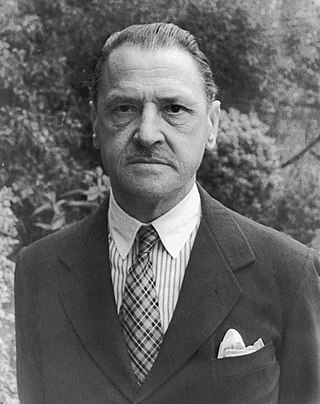
William Somerset Maugham was an English writer, known for his plays, novels and short stories. Born in Paris, where he spent his first ten years, Maugham was schooled in England and went to a German university. He became a medical student in London and qualified as a physician in 1897. He never practised medicine, and became a full-time writer. His first novel, Liza of Lambeth (1897), a study of life in the slums, attracted attention, but it was as a playwright that he first achieved national celebrity. By 1908 he had four plays running at once in the West End of London. He wrote his 32nd and last play in 1933, after which he abandoned the theatre and concentrated on novels and short stories.

The French Riviera, known in French as the Côte d'Azur, is the Mediterranean coastline of the southeast corner of France. There is no official boundary, but it is usually considered to extend from Cassis, just east of Marseille, to Menton, at the France–Italy border, although some other sources place the western boundary further east around Toulon or Saint-Tropez. The coast is entirely within the Provence-Alpes-Côte d'Azur region of France. The Principality of Monaco is a semi-enclave within the region, surrounded on three sides by France and fronting the Mediterranean. The French Riviera contains the seaside resorts of Cap-d'Ail, Beaulieu-sur-Mer, Saint-Jean-Cap-Ferrat, Villefranche-sur-Mer, Antibes, Juan-les-Pins, Cannes, Saint-Raphaël, Fréjus, Sainte-Maxime and Saint-Tropez.
Henri Charrière was a French writer, convicted in 1931 as a murderer by the French courts and pardoned in 1970. He wrote the novel Papillon, a memoir of his incarceration in and escape from a penal colony in French Guiana. While Charrière claimed that Papillon was largely true, modern researchers believe that much of the book’s material came from other inmates, rather than Charrière himself. Charrière denied committing the murder, although he freely admitted to having committed various other petty crimes prior to his incarceration.
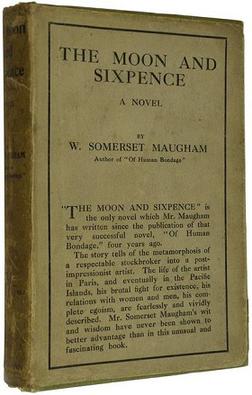
The Moon and Sixpence is a novel by W. Somerset Maugham, first published on 15 April 1919. It is told in episodic form by a first-person narrator providing a series of glimpses into the mind and soul of the central character, Charles Strickland, a middle-aged English stockbroker, who abandons his wife and children abruptly to pursue his desire to become an artist. The story is, in part, based on the life of the painter Paul Gauguin.
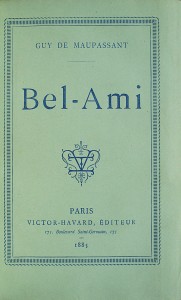
Bel-Ami is the second novel by French author Guy de Maupassant, published in 1885; an English translation titled Bel Ami, or, The History of a Scoundrel: A Novel first appeared in 1903.

Hateship, Friendship, Courtship, Loveship, Marriage is a book of short stories by Alice Munro, published by McClelland and Stewart in 2001.

Cakes and Ale, or, The Skeleton in the Cupboard (1930) is a novel by the British author W. Somerset Maugham. Maugham exposes the misguided social snobbery levelled at the character Rosie Driffield, whose frankness, honesty, and sexual freedom make her a target of conservative opprobrium. Her character is treated favourably by the book's narrator, Ashenden, who understands that she was a muse to the many artists who surrounded her, and who himself enjoyed her sexual favours.
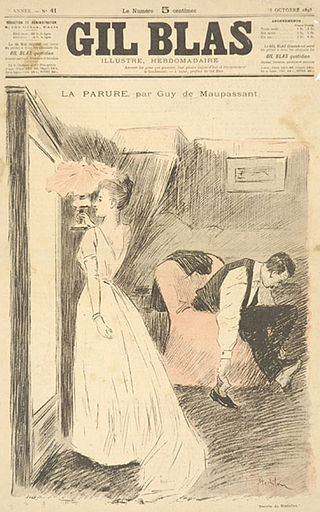
"The Necklace" is a short story by French writer Guy de Maupassant. It is known for its twist ending, which was a hallmark of de Maupassant's style. The story was first published on 17 February 1884 in the French newspaper Le Gaulois.
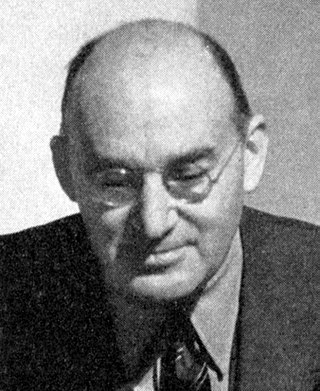
Samuel Nathaniel Behrman was an American playwright, screenwriter, biographer, and longtime writer for The New Yorker. His son is the composer David Behrman.
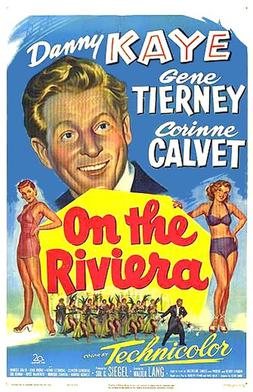
On the Riviera is a 1951 Technicolor musical comedy film made by 20th Century Fox. Directed by Walter Lang and produced by Sol C. Siegel from a screenplay by Valentine Davies and Phoebe and Henry Ephron, it is the studio's fourth film based on the 1934 play The Red Cat by Rudolph Lothar and Hans Adler. This version stars Danny Kaye, Gene Tierney and Corinne Calvet, with Marcel Dalio, Henri Letondal and Sig Ruman.

Quartet is a 1948 British anthology film with four segments, each based on a story by W. Somerset Maugham. The author appears at the start and end of the movie to introduce the stories and comment about his writing career. It was successful enough to produce two sequels, Trio (1950) and Encore (1951), and popularised the compendium film format, leading to films such as O. Henry's Full House in 1952.

Salvatore Vincent Maroni is a fictional character appearing in American comic books published by DC Comics, commonly in association with Batman. The substantial character is portrayed as a powerful mob boss and gangster of Italian descent in Gotham City and an enemy of Batman. Maroni is most famous for disfiguring Harvey Dent, setting the stage for the young district attorney's transformation into the supervillain Two-Face.

The Painted Veil is a 1925 novel by British author W. Somerset Maugham. The title is a reference to Percy Bysshe Shelley's 1824 sonnet, which begins "Lift not the painted veil which those who live / Call Life".

The Letter is a 1927 play by W. Somerset Maugham, dramatised from a short story that first appeared in his 1926 collection The Casuarina Tree. The story was inspired by the real-life Ethel Proudlock case which involved the wife of the headmaster of Victoria Institution in Kuala Lumpur who was convicted in a murder trial after shooting dead a male friend in April 1911. She was eventually pardoned.

Encore is a 1951 anthology film composed of adaptations of three short stories by W. Somerset Maugham:

The Casuarina Tree is a collection of short stories by W. Somerset Maugham, set in the Federated Malay States during the 1920s. It was first published by the UK publishing house Heinemann on September 2, 1926. The first American edition was published on September 17, 1926 by George H. Doran. It was re-published by Collins in London under the title The Letter: Stories of Crime. The book was published in French translation as Le Sortilège Malais (1928) and in Spanish as Extremo Oriente (1945).
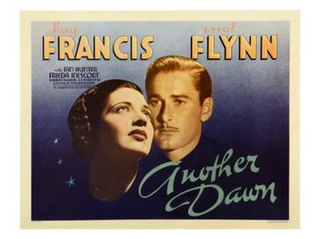
Another Dawn is a 1937 American melodrama film directed by William Dieterle and starring Errol Flynn, Kay Francis and Ian Hunter. It is based on Somerset Maugham's 1919 play Caesar's Wife. It was produced and distributed by Warner Brothers. The film received dismissive reviews.
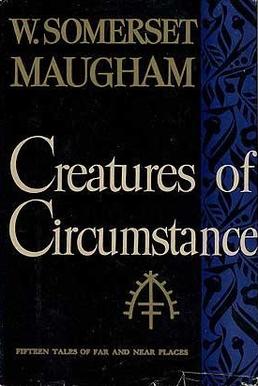
Creatures of Circumstance is a collection of 15 short stories by the British writer W. Somerset Maugham, first published by William Heinemann in 1947. It was the last collection of stories prepared by the writer.

Night in Tunisia was the first book by Irish writer Neil Jordan in 1976, containing ten stories and was published by The Irish Writers Co-operative in Dublin. The story's title is a jazz standard composed by Dizzy Gillespie. It won a Somerset Maugham Award and in 1979 it won the Guardian Fiction Prize and was then published by Writers and Readers in the UK and by George Braziller in the US.
The Trembling of a Leaf: Little Stories of the South Sea Islands is a collection of short stories by W. Somerset Maugham, first published in New York in 1921 by the George H. Doran Company.


















